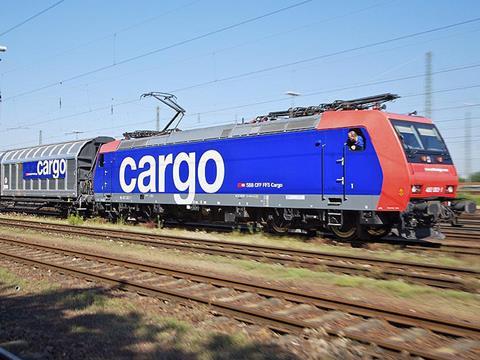
SWITZERLAND: Discussions with investors and potential business partners are on the summer agenda for SBB Cargo Schweiz as it targets a return to break-even by 2020. Having achieved positive results in 2013, 2014 and 2016, SBB Cargo Schweiz ended 2017 with an operating loss of SFr37m as wagonload volumes fell by 14·5%.
The need to present itself in the marketplace as a lean and efficient business attractive to investors lies behind the operator’s decision to review the number of depots it serves. At the moment SBB Cargo Schweiz provides services to 344 depots and terminals, about half of which handle around 90% of wagonload traffic.
In March the operator announced that it would review operations at 100 depots by the end of 2020 and at a further 70 by the end of 2023. It says it will examine with customers whether there should continue to be a daily service to terminals or whether other options exist; these could include concentration of traffic into larger flows, road services, regional ‘ring’ trains or financial support from the cantons.
In the meantime SBB Cargo Schweiz is keen to take advantage of technical advances in a SFr90m investment programme. Plans include better information systems for customers, automated brake tests that would take 10 min instead of 40 min and replacement of manual train inspections by wayside cameras. SBB Cargo Schweiz is also investigating the use of automatic couplings.
In a bid to reduce costs, the operator expects to cut 330 staff from the current payroll of 2 200 by 2020, with another 470 jobs on the line by 2023. About 750 jobs will go through natural wastage, it says. In the meantime SBB Cargo Schweiz is prepared to invest SFr10m in retraining for those staff affected.

















